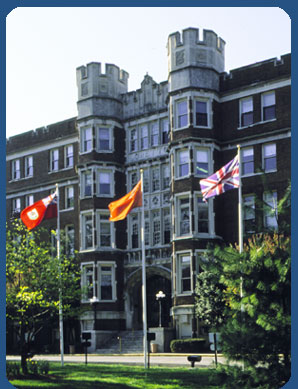| Women's Intellectual Contributions to the Study of Mind and Society Students, as part of an advanced seminar, examined and wrote about the lives of these women,
their intellectual contributions, and the unique impact and special problems that being female had
on their careers. |  |
| For information about referencing this paper - Click Here |
Elizabeth Loftus was born Elizabeth Fishman (Neimark, 1996). She grew up in Bel Air California (Neimark, 1996). Her mother's drowning when Loftus was 14 has had a dramatic affect on her life (Neimark, 1996). Loftus attended UCLA for her undergraduate degree (Neimark, 1996). She originally wanted to be a high school math teacher, but began to like psychology after she took a class at UCLA (Neimark, 1996). Loftus attended graduate school at Stanford (Neimark, 1996). It was here that she met Geoffrey Loftus, the man she married in 1968 (Neimark, 1996). It was also at Stanford the she became interested in long term memory (Neimark, 1996). Both Loftuses moved around separately until about 1972 (Neimark, 1996). Both settled in to working at the University of Washington (Neimark, 1996, University of Washington). The Loftuses divorced in 1991 (Neimark, 1996). Today Elizabeth Loftus is a Professor at the University of California and an Affiliate Professor at the University of Washington (University of Washington, 2002).
Elizabeth Loftus is known for her work with false memory. She has written many articles and books on the subject (University of Washington, 2002). She has shown that it is possible to induce false memories in people and that as time goes on these memories become more real as time goes on (Loftus, 2001). She has extended her research into eye witness testimony and repressed memories (Neimark, 1996, Loftus & Polage, 1999). Loftus has acted as an expert witness in over 200 trials through out the years, several of them high profile (Neimark, 1996).
Reviews of her work are mixed to say the least. In 1995, she received the Distinguished Contribution Award fro the American Academy of Forensic Psychology (Neimark, 1996). She also receives much hate mail and has had to hire security to protect her at times (Neimark, 1996). Loftus's colleagues in psychology give her similar mixed reviews. Some people prize her work, while others do their best to discount everything she claims (Leavitt, 2002). All in all Elizabeth Loftus contributes much to psychology directly through her own work and indirectly through the work others do to discount her.
References
- Leavitt, F. "The reality of repressed memories" revisited and principles of science. Journal of Trauma & Dissociation, 3 , 19-35. Retrieved November 25, 2002, from PsycINFO database.
- Loftus, E. (2001). Imagining the Past. Psychologist, 14 , 584-587. Retrieved November 25, 2002 from, from PsycINFO database.
- Loftus, F. & Polage, D. C. (1999). Repressed memories: When are they real? How are they false? Psychiatric Clinics of North America, 22 , 61-70. Retrieved November 25, 2002 from, from PsycINFO database.
- Neimark, J. (1996). The diva of disclosure, memory researcher Elizabeth Loftus. Psychology Today, 29. Retrieved November 25, 2002 from http://faculty.washington.edu/eloftus/
- University of Washington. (2002, November). Elizabeth F. Loftus . Retrieved November 25, 2002 from the University of Washington website: http://faculty.washington.edu/eloftus/.
Additional Readings
- Loftus, E. (1996). Eyewitness testimony. Cambridge, MA: Harvard University Press.
- Loftus, E. & Ketcham, K. (1994). The myth of repressed memory: False memories and allegations of sexual abuse. NY: St. Martin's Press.
- Loftus, E. & Ketcham, K. (1991). Witness for the defense: The accused, the eyewitness and the expert who puts memory on trial. NY: St. Martin's Press.
- Loftus, E. (1999). Lost in the mall: Misrepresentations and misunderstandings. Ethics & Behavior, 9, 51- 60.
- Ornstein, P. A., Ceci, S. J., & Loftus, E. F. Adult recollections of childhood abuse: Cognitive and developmental perspectives. Psychology, Public Policy, & Law, 4, 1025-1051.
Back to Women's Page
